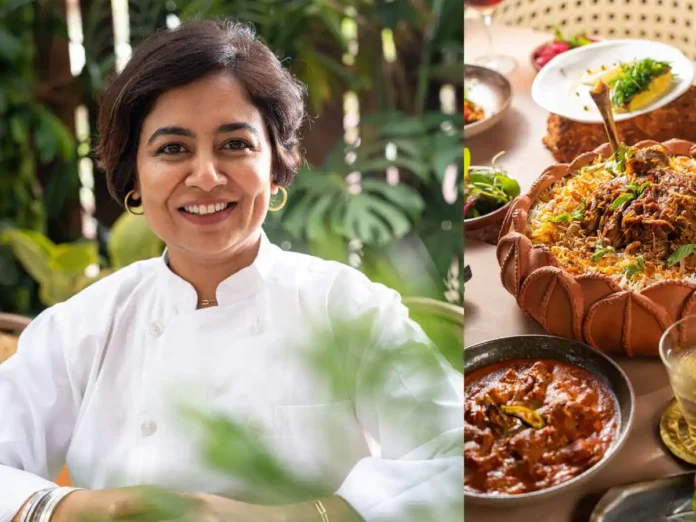The term “Maharaj” used for chefs in India traces its origins back to the illustrious royal kitchens of the Mughal era, explains Kanikka Malhotra, a consultant dietician and diabetes educator. During this period, skilled chefs were appointed by the royal courts to prepare sumptuous feasts for the reigning monarchs and their entourage.
In the opulent setting of the Mughal courts, where culinary excellence was highly valued, these chefs were revered for their exceptional cooking skills and creative flair. They were entrusted with the task of concocting exquisite dishes that tantalized the taste buds of the nobility and reflected the grandeur of the empire.
The title “Maharaj” was bestowed upon these esteemed chefs as a mark of respect and honor, signifying their elevated status in the royal hierarchy. It denoted not only their culinary prowess but also their close association with the reigning monarch, akin to a trusted advisor or confidant.
Over time, the tradition of referring to chefs as “Maharaj” transcended the confines of the royal courts and became entrenched in the cultural fabric of India. Today, the term is commonly used to address chefs across various culinary establishments, from fine dining restaurants to humble roadside eateries.
The reverence associated with the title “Maharaj” extends beyond mere culinary skills; it embodies a deep-seated respect for the culinary heritage and traditions of India. Chefs bearing this honorific title are regarded as custodians of culinary wisdom, tasked with preserving and perpetuating the rich tapestry of Indian cuisine.
In addition to their culinary expertise, “Maharaj” chefs are often revered for their meticulous attention to detail, unwavering dedication, and unwavering commitment to excellence. They embody the spirit of hospitality and generosity, ensuring that every meal they prepare is not just a gastronomic delight but also a memorable experience for their patrons.
The term “Maharaj” is not merely a title but a symbol of culinary mastery and cultural heritage. It reflects the deep-rooted reverence for food and cooking that permeates every aspect of Indian society. In many households, the head chef, often referred to as the “Maharaj,” holds a position of utmost importance, overseeing the preparation of meals with meticulous care and precision.
In Indian cuisine, cooking is considered an art form, with recipes passed down through generations and guarded closely as cherished family secrets. The “Maharaj” embodies this tradition of culinary craftsmanship, drawing upon age-old techniques and time-honored recipes to create dishes that evoke nostalgia and delight the senses.
Moreover, the title “Maharaj” carries with it a sense of responsibility and duty towards preserving culinary traditions. As custodians of India’s gastronomic heritage, “Maharaj” chefs play a vital role in safeguarding traditional recipes and cooking methods from the threat of extinction in an era of rapid globalization and modernization.
Beyond the confines of the kitchen, the term “Maharaj” also conveys a sense of authority and leadership. In many culinary establishments, the head chef is regarded as the “Maharaj” of the kitchen, commanding respect and admiration from fellow cooks and staff members. Their culinary expertise and commanding presence often set the tone for the entire kitchen, inspiring others to strive for excellence in their craft.
Furthermore, the reverence for chefs in Indian culture extends beyond their culinary skills to encompass their role as mentors and educators. Many aspiring chefs view the opportunity to train under a seasoned “Maharaj” as a rare privilege, eagerly soaking up knowledge and techniques passed down through generations.
In recent years, the culinary industry in India has witnessed a resurgence of interest in traditional cooking methods and indigenous ingredients. As a result, “Maharaj” chefs have found themselves at the forefront of this culinary renaissance, leading the charge to rediscover and celebrate India’s rich culinary heritage.

